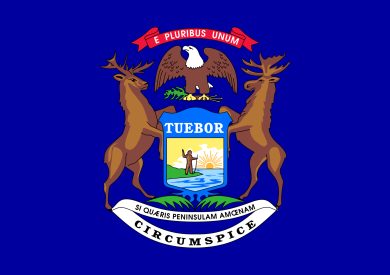
 Popular Cities For Lending in Michigan
Popular Cities For Lending in Michigan
Grand Rapids
Lansing
Livonia
Rochester Hills
Southfield
Sterling Heights
Troy
Warren
Westland
Wyoming
In the Michigan real estate market, grabbing properties before your competition is essential for making the best deals. Although real estate investors sometimes go the traditional route and seek bank loans, the process is anything but speedy.
When time is of the essence, waiting for the lengthy process of getting approval is not an option for most investors. Michigan hard money lenders specialize in providing hard money loans which provide quick funds to investors. These loans are for a non owner occupied property or in some cases for business purpose loans.
Michigan Hard Money Lender FAQ’S
Below are some of the most frequently asked questions we get regarding hard money loans and lenders in Michigan.
What Do Michigan Hard Money Lenders Specialize in?
Michigan hard money lenders specialize in providing short-term, creative financing for real estate investors. If you seek a conventional lender to purchase an investment property, your loan request will be based on the property’s value and your assets. Your credit score, job, and finances will be scrutinized intensely. Hard money lenders base their final loan decisions on the after-repair value. The ARV represents the potential value of a property after all repairs have been accomplished.
What are the Benefits of Michigan Hard Money Loans?
Michigan hard money loans offer advantages that traditional banks cannot. Lenders like Acamnet Financial offer a higher level of flexibility than banks. When qualifying for this type of loan, lenders do not delve too deeply into the finances of real estate investors. In most cases, simply present the property and your plans, which saves you the hassle of gathering countless financial documents.
Do Michigan Hard Money Lenders Look at my Credit Score?
One of the greatest benefits of working with Michigan hard money lenders is the lack of credit score requirements. One of the first things a bank does is check your credit score. You can get approved for a hard money loan in Michigan even if you have bad credit or poor credit, bankruptcies, and foreclosures in the past. Michigan Hard money lenders primarily care about the property you are purchasing.
What is the Interest Rate & Points for Hard Money Loans in Michigan?
Interest rates for hard money loans in Michigan are typically higher than traditional bank loans (conventional loans) because of the greater risk lenders must take on when approving loans. When searching for a hard money lender near me in Michigan, you will find average interest rate is between 8%-15%. You should also be aware that lenders sometimes charge points that are meant to offset their administrative costs. Each point represents 1% of the total loan amount. The average points lenders charge is between 1 to 3. Some lenders may charge up to 10 points. These points are due upfront or at closing, depending on the lender.
What Should I Look for in a Michigan Hard Money Lender?
There are many benefits to working with a Michigan hard money lender. You just need to make sure you are working with the right lender. You can rely on Acamnet Financial Group when you need us most. We offer reliability, consistency, experience, and support. As a real estate investor, you know the importance of grabbing the best property deals when they become available.
How can Hard Money Lenders in Michigan Help Me?
Whether you are new to real estate and real estate projects or an old pro, you know having the capital to purchase real estate is essential. Without funds, you will miss out on real estate transactions. When you partner with hard money lenders in Michigan, you will quickly get the money you need without jumping through the hoops of traditional bank lenders.
How do I get a Hard Money Loan in Michigan?
When you want a hard money loan in Michigan, begin by preparing the property information. Location, size, purchase price, after repair value, repair costs, etc. In most cases, the financing will be based on these numbers. Then, apply for a hard money loan in Michigan using this information and supply some financial information. Then, an appraisal will be ordered to assess the loan-to-value ratio, which will influence the loan amount.
How do I Refinance a Michigan Hard Money Loan?
Refinance a Michigan hard money loan will involve moving from a high interest, short term loan to a longer term, usually lower interest rate loan. Typically a conventional type of loan. When refinancing a Michigan hard money loan you will find it will have a more stringent set of guidelines. You will need to have sufficient credit and income qualifications. As the lending landscaping and regulations constantly change, you want to consult a knowledgeable conventional loan expert.

Current Real Estate Trends In Michigan (2024)
The real estate market in Michigan is a blend of home value decrease and increase across different metro areas. Some parts are predicted to experience a downturn in home values, while others could see a moderate or considerable rise.
Though there has been a drop in residential sales volume, the average house price in Michigan has gone up, suggesting strong demand for housing. Nevertheless, the market is highly competitive, with fewer homes sold and an extended median time on the market.
Furthermore, the supply of homes is depleting, with fewer newly listed properties. These trends offer benefits to sellers, but affordability problems and severe competition could lean in buyers’ favor.
This article provides an overview of the present real estate trends in Michigan, including housing market expectations, performance and sales data, and the aggressive nature of the market, all while keeping a neutral, detached, and data-driven approach.
Michigan Housing Market Forecast
An analysis of Michigan’s housing market can be made by looking at the forecast for home values across different metro areas.
Some metro areas such as Monroe, Adrian, Houghton, Escanaba, Alpena, and Coldwater are predicted to experience a decrease in home values.
Meanwhile, Ann Arbor, Iron Mountain, Jackson, and Detroit are estimated to have a moderate increase in home values.
Lastly, Cadillac, Sault Ste. Marie, Marquette, and Grand Rapids are likely to experience a notable rise in home values.
Such forecasts can provide key insights into the future of the Michigan housing market.
Performance and Sales Data
Residential home sales in Michigan have taken a significant downturn. This year’s sales volume stands at 14,907, a considerable drop from the 18,378 recorded in the prior year.
Despite the sales decrease, the average home price has risen 1.86%, hinting at a healthy housing market in the state. This could point to a strong demand for housing, despite the current market environment.
Competitive Nature and Housing Supply
Michigan’s housing industry demonstrates a highly competitive atmosphere and an inadequate housing supply. The median home price in the state stands at $227,500, representing a 2.3% rise from the previous year. However, the number of homes sold in the year has diminished by 8.9%.
The median amount of time for a house to remain on the market is 32 days, which is 14 days more than the year prior. These figures demonstrate a strong demand for homes in Michigan, leading to a competitive market for buyers.
Sources
https://www.noradarealestate.com/blog/michigan-housing-market/
https://www.houzeo.com/blog/michigan-real-estate-market/
https://www.bridgemi.com/business-watch/michigan-home-values-among-lowest-us-what-do-they-sell-your-zip

All About Michigan
Michigan, located in the Midwest region of the United States, is known for its diverse population, abundant water features, and rich cultural heritage.
Michigan offers a unique geographical landscape with its two peninsulas, the Lower Peninsula and the Upper Peninsula.
The state’s economy flourished with the rise of the automotive industry, particularly in Detroit, which became a significant center of automobile production.
Michigan is also home to prestigious universities, such as the University of Michigan, contributing to its intellectual and educational prominence.
With English as the primary language spoken, the state showcases its multiculturalism through secondary languages like Spanish and Arabic.
Michigan boasts the longest freshwater coastline in the United States and is adorned with numerous inland lakes and ponds, making it a hub of natural beauty.
This article will provide comprehensive information about Michigan’s exciting facts, geography, demographics, time zones, water features, natural beauty, history, and cultural significance.
Interesting Facts
Michigan, with its rich history, diverse population, and unique geographical features, offers a plethora of interesting facts that contribute to its distinctiveness as a state.
Michigan is known as the Great Lakes State due to its location and extensive coastline along four of the five Great Lakes. It also boasts the longest freshwater coastline of any political subdivision in the U.S.
Additionally, Michigan has 64,980 inland lakes and ponds, making it a haven for water enthusiasts.
The state’s automotive industry revolutionized transportation with Henry Ford’s development of the moving assembly line, leading to Detroit becoming a significant center of automobile production.
Michigan’s cultural development is also noteworthy, with the establishment of prestigious universities such as the University of Michigan and Michigan State University.
These facts about Michigan’s geography, history, and culture set the stage for exploring its demographics and unique features.
Geography and Demographics
Geographically diverse, Michigan boasts two distinct peninsulas, the Lower Peninsula and the Upper Peninsula, each offering unique landscapes and natural beauty. The Lower Peninsula, shaped like a mitten, is the larger of the two and is home to major cities such as Lansing and Detroit. Rolling hills, fertile farmland, and numerous inland lakes characterize it. The Upper Peninsula, separated from the Lower Peninsula by the Straits of Mackinac, is known for its rugged wilderness, dense forests, and stunning shoreline along Lake Superior. It is sparsely populated and offers opportunities for outdoor activities like hiking, fishing, and hunting. Michigan’s diverse geography attracts tourists and outdoor enthusiasts throughout the year.
Moving on to the next section about time zones and postal abbreviations, Michigan has two time zones. Most of the state follows the Eastern Time Zone, while four counties in the Upper Peninsula follow the Central Time Zone. The USPS abbreviation for Michigan is US-MI, and the traditional abbreviation is Mich.
Time Zones and Postal Abbreviation
Concerning time zones and postal abbreviations, it is worth noting that Michigan is divided into two time zones.
Most of the state follows the Eastern Time Zone (UTC−05:00), while four counties in the Upper Peninsula adhere to the Central Time Zone (UTC−06:00).
During daylight saving time, the time zone changes to Eastern Daylight Time (UTC−04:00) and Central Daylight Time (UTC−05:00), respectively.
Regarding postal abbreviations, the USPS abbreviation for Michigan is US-MI, while the traditional abbreviation is Mich.
These time zones and postal abbreviations are essential for proper communication and coordination within the state.
Moving on to the next section about water features and natural beauty, Michigan’s abundant lakes and scenic landscapes make it a truly remarkable state.
Water Features and Natural Beauty
Renowned for its breathtaking water features and awe-inspiring natural beauty, Michigan showcases a stunning array of lakes, rivers, and picturesque landscapes.
With the longest freshwater coastline of any political subdivision in the U.S., Michigan is bordered by four Great Lakes and Lake St. Clair. These vast bodies of water offer numerous boating, fishing, and water sports opportunities.
In addition, Michigan boasts an impressive number of inland lakes and ponds, totaling 64,980. From the shimmering waters of Lake Michigan to the serene beauty of Sleeping Bear Dunes National Lakeshore, the state’s natural landscapes provide a haven for outdoor enthusiasts and nature lovers alike.
Michigan’s water features and natural splendor contribute to its rich history and cultural significance as a destination for relaxation and adventure.
History and Cultural Significance
Having a rich and diverse history, Michigan’s cultural significance is evident through its deep connections to Native American tribes, French and British rule, and its pivotal role in the War of 1812.
Native American tribes first occupied the state and later came under French rule until the end of French law. After the Treaty of Paris in 1763, Michigan became part of the British Province of Quebec.
The region played a significant role during the American Revolutionary War, with Detroit serving as an important British supply center. Michigan surrendered to the United States during the War of 1812 and was recaptured by the Americans in 1813.
The state’s population grew rapidly after the opening of the Erie Canal in 1825, leading to its statehood in 1837. Michigan’s history and cultural significance are integral to understanding the development and identity of the state.


 Popular Cities For Lending in Michigan
Popular Cities For Lending in Michigan